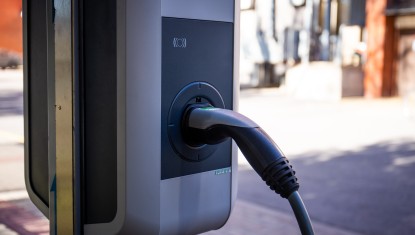News
Recent News
The Saeima establishes a single application for construction and property registration.
Published Friday, 14 November 2025The apartment owners’ association will be able to receive loans for the renovation of residential buildings.
Published Thursday, 13 November 2025Due to technical issues at LVRTC, the operation of the BIS has been affected
Published Thursday, 13 November 2025The amendments to the law aim to clearly regulate the disposal of co-owned property objects.
Published Wednesday, 12 November 2025Invitation to utilize eu co-funding opportunity to develop electric vehicle charging points
 Published
Wednesday, 26 June 2024
Published
Wednesday, 26 June 2024
A survey conducted by the research center "Kantar" reveals that approximately a quarter (28%) of Latvian residents would be inclined to purchase an electric vehicle if a broader public charging network were available. To promote the expansion of the charging network, "Sadales tīkls" continues to work on building electricity grid connections for the development of public charging stations, using funds allocated for this purpose from the European Union (EU) Recovery Fund.
With EU funding of 6.5 million euros, more than 2000 connection points for electric vehicle charging stations are planned to be built by mid-2026. Initially, only state or municipal structures could apply as partners in this project, but now the circle of cooperation partners has been expanded - electric vehicle charging point operators registered as electric vehicle charging service providers in the database of the State Joint Stock Company "Latvijas Valsts ceļi" are also invited to apply.
This is an opportunity to implement electric vehicle charging station development plans at lower costs, as the design and construction of the power supply infrastructure (from the general electrical grid to the metering panel) will be carried out by "Sadales tīkls" with EU funds, while partners will need to provide the charging equipment, its installation, or the area for the development of public charging points at their own expense. For example, a business with land suitable for a charging station can approach an electric vehicle charging point operator for collaboration and apply for the project. More information on conditions and application is available on the "Sadales tīkla" website.
Currently, more than 700 public charging points are under development across Latvia. The first public charging points developed with the co-financing of the EU Recovery Fund are expected to be opened this summer.
The survey was conducted online in April this year in collaboration with the research center "Kantar". The survey included 1000 Latvian residents aged 18 to 75.